

Every time she leaves her house, she carries her cell phone in her hand with it ready to record any moment in which she feels in danger. Kerem Fonseca walks along the streets of Santa Cruz, in Guanacaste, afraid of running into her former partner.
She endured countless episodes of sexual, physical and psychological abuse and patrimonial violence.
Her former partner would not let her contact her family, told her how to dress, shouted insults at her, had bouts of jealousy, controlled her money, abused her and beat her to the point of leaving marks on her body.
When he came home drunk, which happened every week, everything got worse, Kerem recalled. He also prevented her from pursuing her passion for hairstyling, forcing her to quit her job and stay home.
Today, at 29, Kerem is finally free and lives with her two children in her own home, a home that she managed to obtain after years of struggling to get a housing grant from the Mixed Institute of Social Assistance (IMAS).
In addition, she started offering services as a barber again. When she goes to someone’s home to cut their hair, she gets on her bicycle with her daughter behind her and her son in front. She’s never away from them out of fear that they will be taken from her.
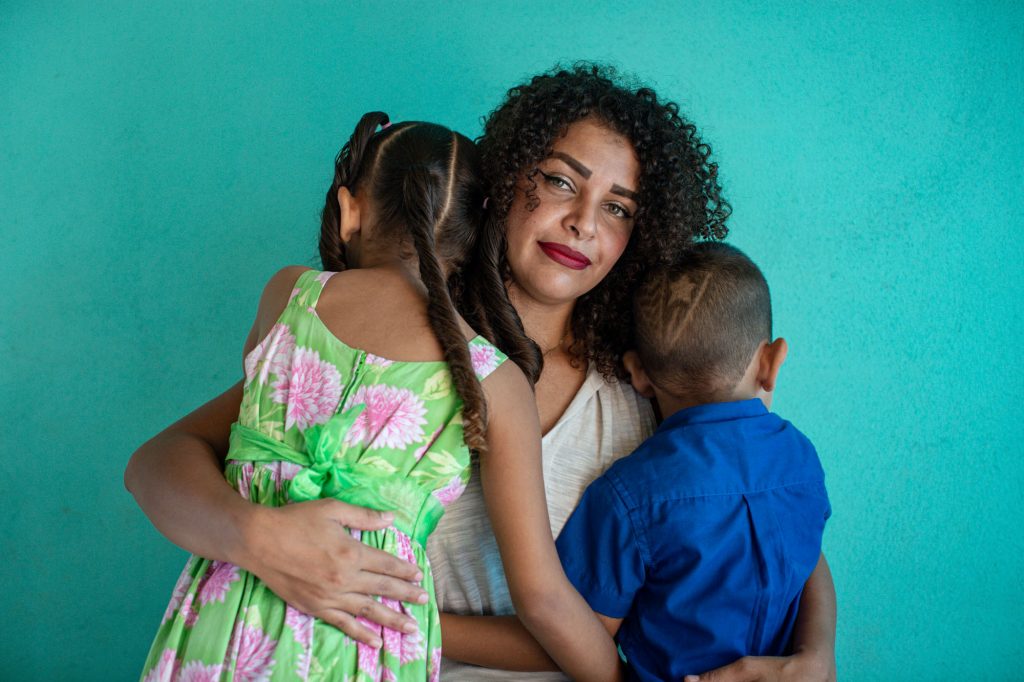
When Kerem Fonseca met the man who later attacked her, she was pregnant. He was kind and decided that he would take care of the girl. The violence started when she gave birth, and persisted even after having a child together. Credit: Cesar Arroyo
Four years have passed since that bitter episode, but her hands still shake when she remembers what she lived through. The aftermath of each physical and emotional blow is still there.
She reported her attacker because she “didn’t want to be ‘one more,’” she said with a trembling voice, referring to women who are killed at the hands of their domestic partner, or by any man because of their gender, known as femicide.
In 2019, Guanacaste ranked second in the country in domestic violence complaints, according to an analysis done by The Voice of Guanacaste for every 10,000 women in each region of the country. It has also ranked third in cases reported under the Law on Penalization of Violence against Women during the last four years.
National legislation needs to improve in protecting victims of gender violence so that women are protected when they report someone.
I don’t want to be brave. I want more women to feel free,” she affirmed.
She was already part of a program of the National Institute for Women (Inamu) before filing a complaint, and that was where she realized that she was living in violence, but it took her time to get out of that situation out of fear.
Steps still need to be taken to improve how cases of femicide are handled, to avoid that outcome that Kerem did not want to be a part of but that many women haven’t been able to escape.
Saying Goodbye to an Abusive Man
Just like any other day, Kerem’s former partner had arrived drunk, but this time he didn’t just hit her. He hit her daughter too. In that moment, she knew she had to put an end to this cycle of violence.
A few days before her birthday, she asked her assailant for permission to go to San Jose to celebrate it in the capital. Surprisingly, he said yes.
She put her things and her two children’s things in two garbage bags. At that time the girl was five years old and the baby was just a year and a half. She took a bus to San Jose, where she is from, and prepared to say goodbye to her assailant.
She had nowhere to go, nor did she have a job, but she knew that fighting for her children and for her life was necessary.
It didn’t end there. An old friend from school took her into his home, but she paid for her and her children staying there: he abused her. She managed to flee the place and out on a sidewalk, her eyes full of tears, holding her children’s hands, she knew that the three of them had nowhere to sleep that night.
On a post, she saw a “for rent” sign. Without thinking twice, she called. A woman answered and, after hearing Kerem’s story, she took them in. She too had attended Inamu talks about domestic violence. That day, her life got a new beginning.
Later on, overcome by immense fear, Kerem reported her attacker.
The day she made the decision to do so, she went to the courthouse and couldn’t even go into the building. She was afraid that he wanted to take her children from her. He had already threatened to do so.
This happened to her three times, until she finally managed to give her statement and signed the complaint.
Many women feel the same fear when filing a complaint, out of fear of their aggressor and also because of the tedious legal processes involved.
“This is what discourages the victims from continuing with the procedures because they are extremely re-victimizing,” affirmed the head of the Gender Technical Judicial Department, Jeannette Arias.
“The act of having to tell it to strangers is already a very important factor of additional suffering, but then what we have to do is reduce it as much as possible, reduce the number of statements, reduce the times. That is another great challenge we have: how long the processes take,” added Arias.
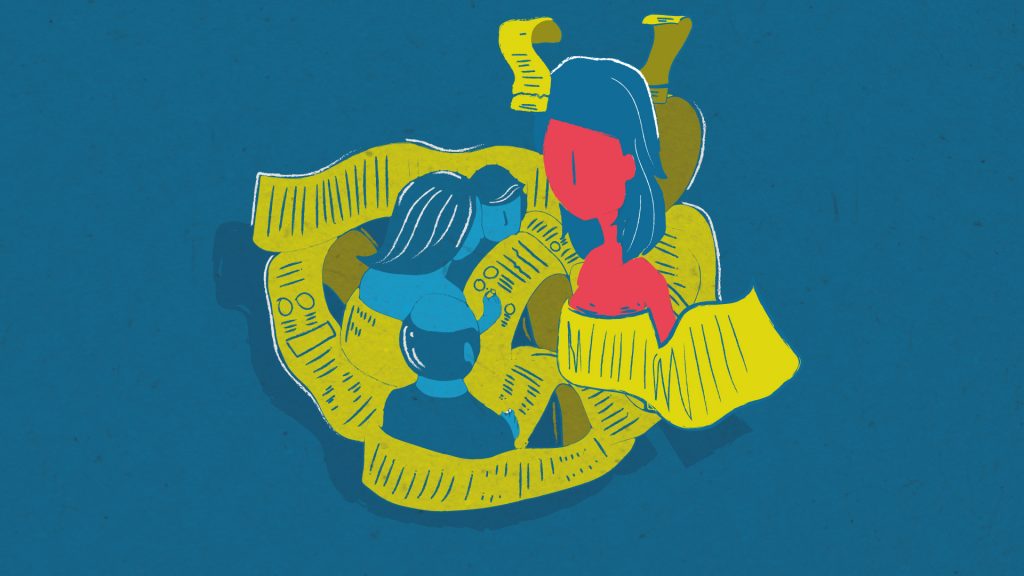
Credit: Dunkan Harley
In response to this, the judicial branch created the Comprehensive Victim Service Platform, known as PISA, for its acronym in Spanish, which offers women all of the agencies in the same building, requests a maximum of one or two statements and offers them psychologists and social workers.
However, the platform is only set up in four places in the country: Pavas in San Jose, San Joaquin de Flores in Heredia, La Union de Tres Rios in Cartago and Siquirres in Limon. These are areas with a high influx of crime. Guanacaste is not yet on the list, but it could be under analysis.
In a year characterized by the slogan “stay at home,” the pandemic makes it harder to file complaints. To do so and to request protective measures (better known as restraining orders) it is necessary to go in person.
“For some women, this has been horrible because since the person who assaults them is present [at home], it is much more difficult to go out and file a complaint with the judiciary branch, go to an Inamu office to seek help and it’s even harder to call 911,” explained Silvia Mesa, a researcher at the University of Costa Rica’s Center for Women’s Studies Research (CIEM).
In other countries, strategies have been devised to send key messages to authorities. “In Costa Rica, there have been very few strategies,” Mesa noted.
Another gap when filing a complaint is the struggle against social roles. When a woman like Kerem admits to a close friend that she wants to file a complaint, many times they are told that it is better to keep quiet and not get into more problems. Violence is normalized.
At the national level, Guanacaste stands out in the number of complaints of violence against women and calls to 911 for help. According to Arias, an approach to the reason behind this behavior would be the machista culture and the socio-cultural roles that have been strongly entrenched in the population, at the same time that it is uncomfortable to see how women want to abandon these learned behaviors.
Those same roles are present in some of the personnel who attend to victims when filing a complaint.
When going to the offices in rural areas, the personnel tend to be from those same regions, so their actions also follow their own cultural patterns in each area,” pointed out Arias, from the judicial branch.
The Next Steps
The violent episodes that Kerem experienced happened years ago, but her attacker is still free. The only shield she has are protective measures, something that her attacker has respected, but which is not always the case in other cases.
The same day the aggressor is notified of protective measures, he usually unleashes an act of violence, Arias affirmed.
In Costa Rica, according to the Law against Domestic Violence, under protective measures, the authorities order the alleged aggressor to leave the home shared in common and limit him to an area a distance away from that of the person who was allegedly attacked.
“The country has a Law against Domestic Violence that isn’t specific to women, and it isn’t enough to comply with the country’s obligations with the Convention of Belém do Pará, and we have the Law on Penalization of Violence against Women that has a very restricted scope of application,” stated Mesa, from CIEM.
Known as Belém do Pará, the Inter-American Convention on the Prevention, Punishment and Eradication of Violence against Women, which Costa Rica joined in 1994, seeks to address any gender-based violence against women.
In Costa Rica, penalties for violence against women only apply when these crimes occur in a marriage or domestic partnership, leaving out many women who are violated by their ex-husband, a neighbor or a distant relative, for example.
The same thing happens with femicides. The same law of violence against women establishes that “a prison sentence of twenty to thirty-five years shall be imposed on anyone who kills a woman with whom he maintains a marriage relationship, in a domestic partnership that is or isn’t declared.”
“It has been identified that the current framework, at least in the penalizing part, doesn’t provide justice for everything that is femicide,” stated legislator Paola Vega, who presented a bill in Congress to broaden that criteria to any woman who is violated or murdered because of her gender. In August of this year, the bill’s text was sent to the Special Permanent Commission for Women to be studied and reported on.
Even the cases of violence that the law does protect, such as Kerem’s, are long and even end up dismissed. Another stone in the path.
In sexual crimes and also in those associated with the Law on Penalization of Violence against Women, there are high percentages of dismissals, nonsuits and acquittals, explained Arias, from the gender department. “Ultimately, complaints are filed, but when we go to follow up through to the end, most of them don’t prevail.”
Arias considers this a wake-up call on the need to analyze why the processes don’t prevail. “As an institution, we have a lot to address and, well, [so does] the entire State as a whole,” she added.
On one hand, there is the lack of staff training and, on the other, the high employee turnover and the filters for the election of key positions, a reality that affects the judicial branch in general. This is highlighted in the State of Justice report from the April 2020 State of the Nation Program.
Domestic violence courts receive thousands of complaints a month and, in practice, this shows that there are not enough personnel to deal with this pandemic, this violence against women, explained Oscar Morera, the father of young Eva Morera, who died at the hands of her partner in November 2019.
One more gap: attending to cases of disappearance.
“With the femicide cases this year, especially Luany’s, and in the hearing we had with the OIJ (Judicial Investigation Organization) in the Women’s Commission, we confirmed that OIJ at this time is being negligent with the protocols that they have to follow with disappearances of women,” explained legislator Vega.
According to Vega, the approach during the first hours of disappearance is key, but the response they give to families is lamentable for now.
There are mandates not to repeat stereotypes when approaching the family, but these are broken, according to Vega. “For example, there is the case of Luany (the femicide case of a young woman in Cartago). When the relatives came to report it, they told them: ‘Don’t worry, surely she’s gone out to party,’” she added.
Morera, for her part, affirmed that the authorities’ response must be improved to identify cases of violence and address them proactively, before the worst happens.
In the case of Luany, the Legislative Assembly asked the head of the judicial branch, Walter Espinoza, to appear before congress to justify the institution’s inaction. His response “made allusions or assumptions about girls’ private lives, which in no way justifies that they were killed,” said Oscar Morera.
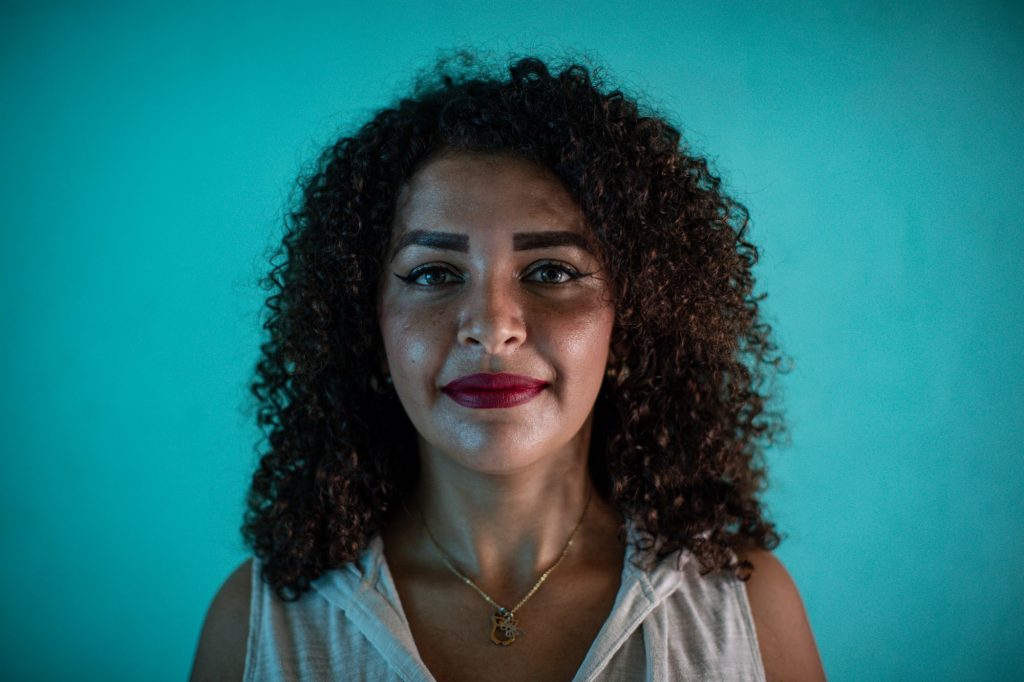
This is Kerem. She doesn’t know who she got her dark skin and curly hair from, but she avoids digging into her past. Her gaze is focused on today, on feeling freer and more secure each day with her children at her side. Credit: Cesar Arroyo
Starting Over After Getting Free
Kerem was able to leave her attacker and not end up on the list of femicides, but she asks for protection for all women who take this step and who live in violence.
At least in my case, I was able to do it, still afraid, but I worked up the courage for my children. But it is difficult to walk in fear after filing the complaint,” she emphasized.
“When each woman files her complaint, she and her children should be given more protection, her case should be followed up on and more support should be given, both psychological and financial,” Kerem affirmed.
She also has two older children from her previous relationship. She sees them by video call and hopes one day to have the financial and legal possibilities to bring them back. For unknown reasons, they prevent her from doing so now. That is another of her struggles.
Now she feels sorry for how many women “even file a complaint, sign, but out of fear or their financial situation, they return to the aggressor.”
Kerem went from one place to another in search of a roof over her head for years, waiting for her house, and now she has it. She still lives in fear, but she is free.



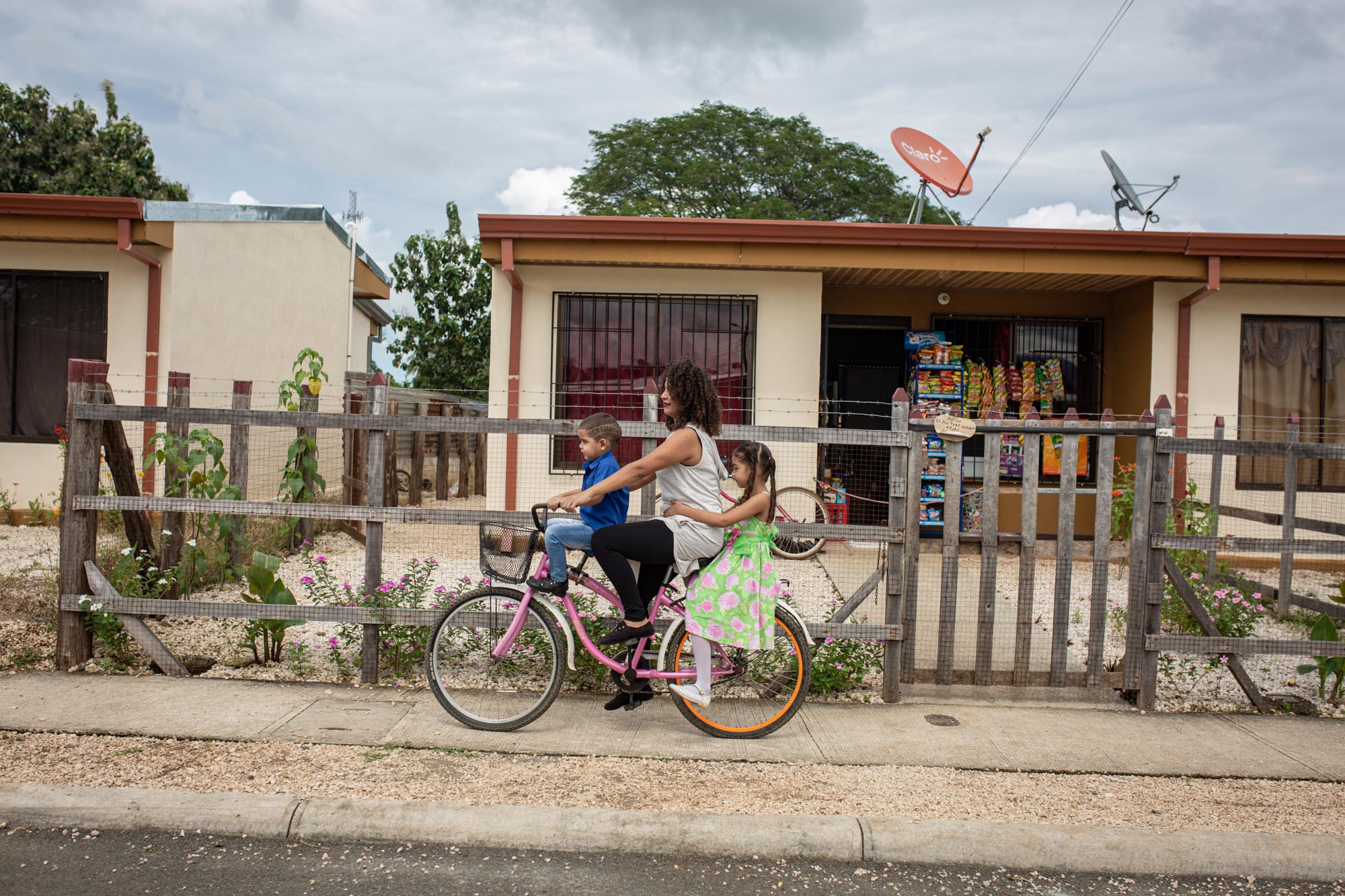
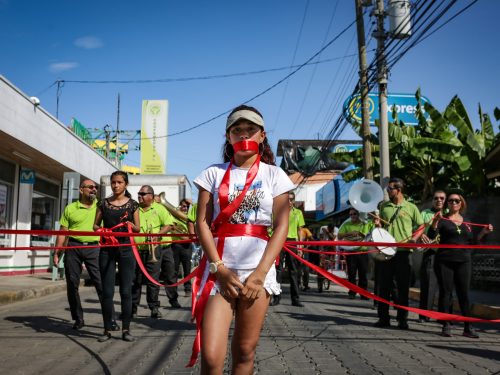
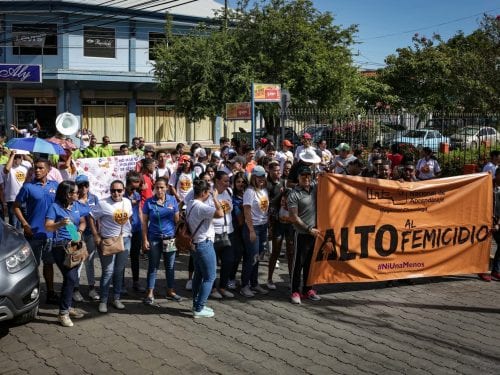
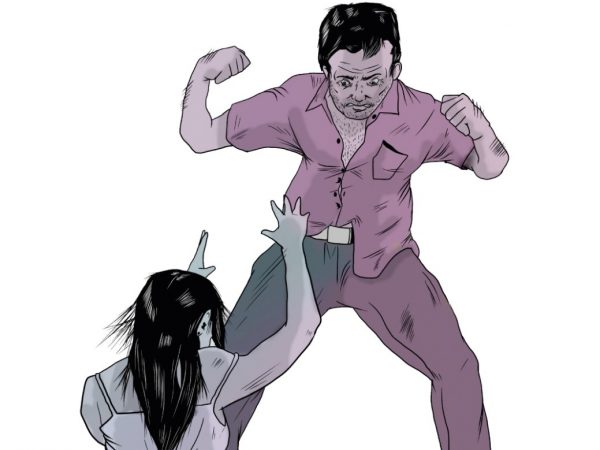

Comments